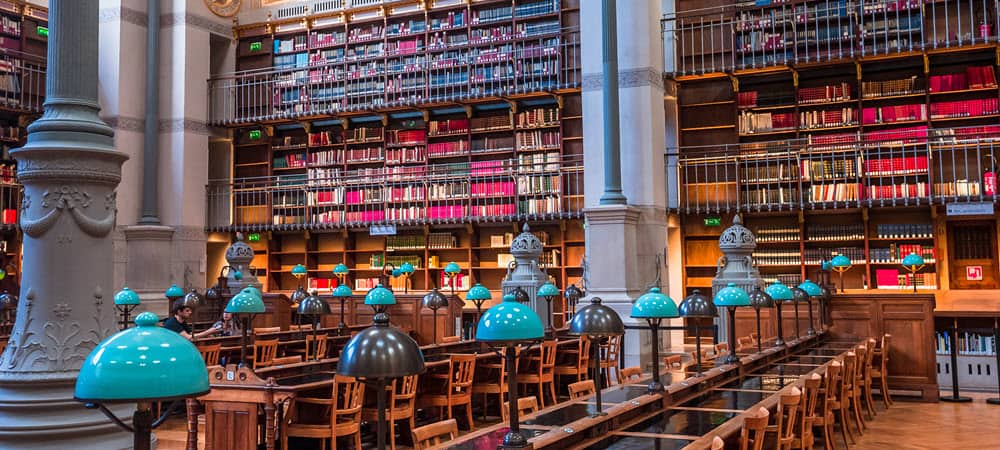To be clear, not everything is shown. Many old exhibits are too frail to see the light of day, and there may be other reasons that an exhibit cannot be photographed and shown online. But with the advent of highly advanced scanners and 3D printers, digitized collections are becoming easier and more cost-effective to do.
8 Libraries & Museums That Now Have Digitized Collections Online
There are countless examples of digitized collections online, but here are eight which I personally love the most.
The British Museum
Being British myself, you have to forgive me for starting with a British institution. Established in 1753, this is the first place to go when visiting London. But the website is the next best thing if you don’t have the funds or the time to go to London. The British Museum has over eight million objects in its collections; to date, half of that is now online. But only a million listings have images to go with them. You can download high-resolution images under a Creative Commons license (free account signup is required). They also have objects uploaded in 3D, which can be viewed in a browser or via virtual reality.
The British Library
Again a venerable British institution, but one of my favorite websites. Their digital collections are vast and fascinating. You can literally lose hours down this rabbit hole. They have digitized over a million images on Flickr under a Creative Commons license. But they freely admit they don’t know a lot about each image, so they are crowdsourcing for information. You can also view 15,000 ancient Persian texts, download a PDF coloring book, view Shakespeare’s plays, and much more.
US Library Of Congress
Okay, American readers, let’s move on to the US now, and where better to start than the Library of Congress? Their digitized collections are staggering. Over 30,000 images on Flickr, a YouTube channel with old film footage and lectures, a newspaper archive, and they have the papers of many prominent people, including Hannah Arendt, Benjamin Franklin, and Alexander Hamilton. If cartoons are your thing, you can browse through the cartoon archive and download whatever strikes your fancy.
The Smithsonian
The Smithsonian and the Library of Congress seem to be in a race to see who can put the most online. Considering the vast archives of the Smithsonian, they probably have a lot of hidden treasures to reveal. Consider for a moment the Freer Sackler collection, which has art from all corners of the world. Or rock and roll photos, the portrait gallery, and Thomas Jefferson’s cut and pasted Bible. You can also go on a 3D panoramic tour of the museums.
New York Public Library
The New York Public Library has an extremely impressive digital collection available, although understandably, a lot of it is New York-focused. Download old maps of New York, 17,000 old restaurant menus, 1,000 old holiday postcards, 100,000 pieces of theater ephemera, and the personal papers of Walt Whitman, Nathaniel Hawthorne, and Henry David Thoreau.
The Vatican Archives
The Vatican has been rather late to the whole digitization game since showing what they have is not really its forte. They prefer to keep things locked away. Currently, they only have about 15,000 manuscripts digitized, which means they have a long way to go. But what they have isn’t going to rock the world (such as the missing Gospel by Mary Magdalene). But if you are into illustrated manuscripts, the Vatican has you covered.
The Digital Comic Museum
Okay, this one is a bit of a cheat on my part, but I still like it. It isn’t a “museum” in the strictest sense of the word but instead an online archive of comic books in the Public Domain. This means no Marvel or DC comic books, but some good ones are still worth reading. You need a free account to download the comic books, which can be the best read for a comic book reader.
Conclusion
Digitization of archives and exhibits is always a work in progress. In the case of the Smithsonian, Library of Congress, and the British Library, the process will never end due to their sheer volume of objects. So it is worth signing up for their newsletters to be told when new collections have been brought out. This is our culture, and thanks to the Internet, a lot of it is finally seeing the light.
![]()









